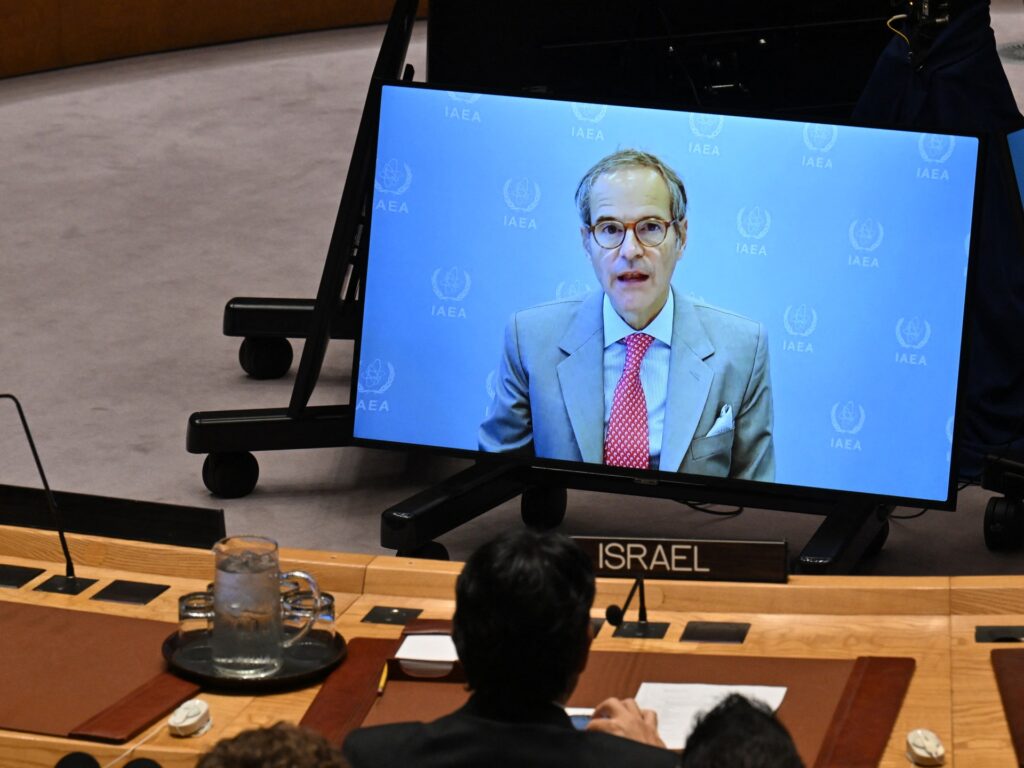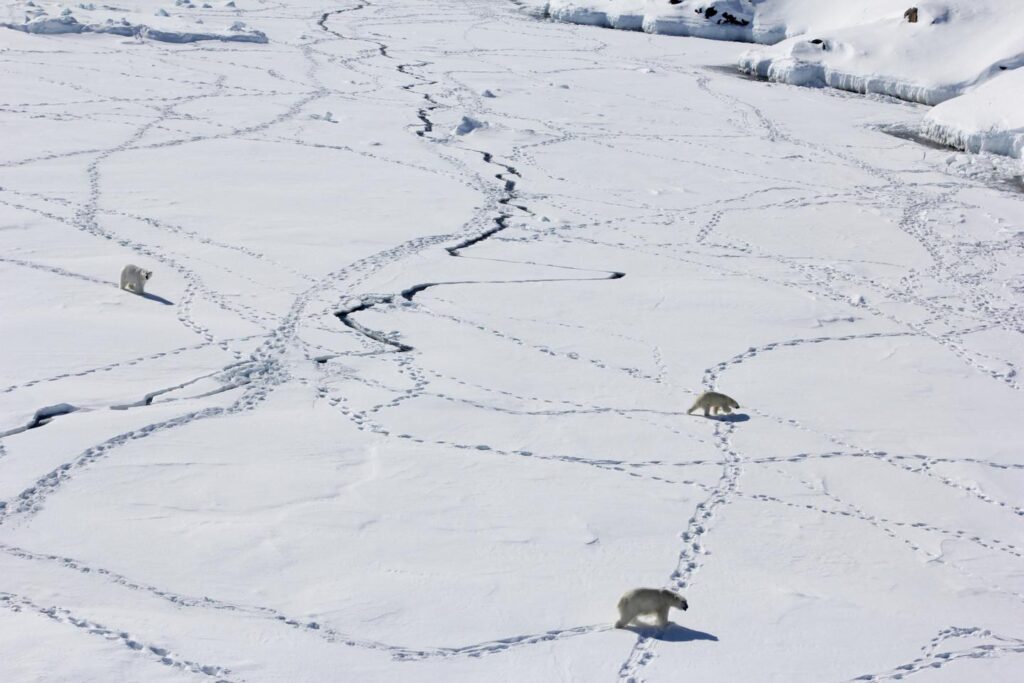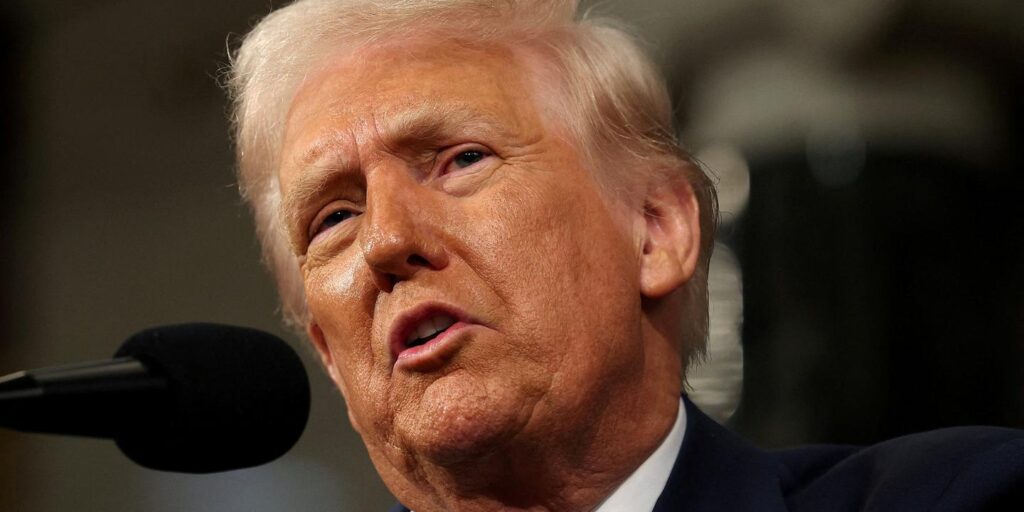Rafael Grossi, chief of the United Nations’s atomic watchdog, has warned that an Israeli strike on Iran’s Bushehr nuclear power plant could trigger a regional catastrophe, as the two countries continue to trade attacks for the eighth straight day.
The director of the International Atomic Energy Agency (IAEA) told the UN Security Council on Friday that a direct hit on Russian-built Bushehr, located on the the Gulf coast, could “result in a very high release of radioactivity”, with “great consequences” beyond Iran’s borders.
“I, therefore, again call for maximum restraint,” said Grossi, telling delegates at an emergency session on the Iran-Israel conflict that armed attacks on nuclear facilities should never take place.
In a worst-case scenario, a strike on Bushehr, which contains “thousands of kilogrammes of nuclear material”, would require evacuation orders to be issued for areas within several hundred kilometres of the plant, including population centres in other Gulf countries, he said.
Grossi said that a strike on the two lines that supply electricity to Bushehr could cause its reactor core to melt, with dire consequences.
Authorities would have to take protective actions, administering iodine to populations and potentially restricting food supplies, with subsequent radiation monitoring covering distances of several hundred kilometres.
Grossi appealed for a diplomatic solution and repeated his willingness to travel to negotiate a deal.
“The IAEA can guarantee through a watertight inspection system that nuclear weapons will not be developed in Iran,” he said.
Grossi made his comments as Iranian news portal rouydad24 reported that air defences in the city of Bushehr had been activated. No information about the target of the alleged Israeli attack was initially available.
Israel raising ‘spectre of fear’
Israel began attacking Iran last Friday, claiming Tehran was on the verge of developing nuclear weapons, an accusation Iran has denied, saying its nuclear programme is only for peaceful purposes.
Also speaking at the meeting, UN Secretary-General Antonio Guterres said the Iran-Israel conflict could ignite a fire that no one can control and called on all parties to “give peace a chance”.
Iran’s UN ambassador Amir-Saeid Iravani stressed the civilian toll of Israel’s attacks on the country, at one point holding up photos of Iranian children killed in the bombings.
Iravani said Israel’s attacks constituted “gross violations of international law”, urging the UN to take action, warning that if the non-proliferation regime were to collapse, the Security Council would “share responsibility with the Israeli regime”.
Israeli envoy Danny Danon then accused Iravani of “playing victim”. “We do not apologise for defending ourselves. We do not apologise for striking Iran’s nuclear facilities. We do not apologise for neutralising the threat,” he said.
Reporting from the UN headquarters in New York, Al Jazeera’s Gabriel Elizondo said that Danon had been “trying to raise the spectre of fear and trying to get more support from other nations for Israel’s actions in Iran”.
Danon, he said, had claimed that Iran had the ballistic missile capability to hit Western Europe and even the east coast of the United States.
Russian UN Ambassador Vasily Nebenzya said Israeli attacks on “Iranian peaceful civilian nuclear facilities” were “liable to plunge us into a hitherto unseen nuclear catastrophe”.
“Israel has disregarded the assessments of the specialist international agency, having … single-handedly, decided to carry out strikes against a sovereign country with no regard for the UN Charter,” he added.
A senior Iranian official told the Reuters news agency that Iran was ready to discuss limitations on uranium enrichment but that any proposal for zero enrichment – not being able to enrich uranium at all – would be rejected, “especially now under Israel’s strikes”.
Chernobyl-style nuclear disaster
The IAEA’s Grossi spoke a day after an Israeli military official walked back a military spokesperson’s claim that Iran had struck Bushehr, saying the comment had been “a mistake”.
Grossi said he could neither confirm nor deny that Bushehr, Iran’s only operating nuclear power plant, had been hit.
Russian nuclear energy chief Alexei Likhachev had earlier said that any attack on the plant, where hundreds of Russian specialists work, could cause a Chernobyl-style nuclear disaster.
Speaking via videolink, Grossi said the IAEA was not aware of any damage at Iran’s underground uranium enrichment facility at Fordow.
He said there had been no nuclear fallout from attacks at the Natanz and Isfahan nuclear sites and the Natanz enrichment site.
Similarly, no radiological consequences were expected at the Khondab heavy water research reactor, under construction in Arak, which Israel also targeted.


